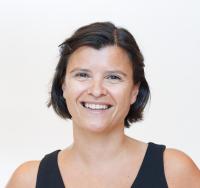Sabrina Hermosilla, PhD, MPH
- Assistant Professor of Population and Family Health

Overview
Dr. Hermosilla has almost two decades of experience designing and conducting applied research studies. She applies epidemiologic principles and methods to study social determinants of mental health and psychosocial outcomes in complex global settings. With an explicit focus on potentially modifiable factors, her research in implementation science explores and builds the evidence around commonly implemented interventions, primarily in humanitarian and forced migration settings. Her teaching centers on the epidemiology of global and adolescent mental health, measurement and psychometrics, and applied data collection and management best practices.
Academic Appointments
- Assistant Professor of Population and Family Health
Credentials & Experience
Education & Training
- Bachelor of Arts, 2001 International Relationship, Colgate University
- Master of Science, 2003 Secondary Education, City College of New York
- Master of International Relations & Master of Public Health, 2008 Forced Migration, Columbia University
- Master of Philosophy, 2013 Epidemiology, Columbia University, Mailman School of Public Health
- Doctor of Philosophy, 2015 Epidemiology, Columbia University, Mailman School of Public Health
Committees, Societies, Councils
Founding President of Board of Directors, Roots of Health
Founding Member, Chair of Research and Evaluation Thematic Group, Olympic Refuge Foundation (ORF) Think Tank, International Olympic Committee
Secretariat Member, INSPIRE Working Group
Research
Dr. Hermosilla's areas of interest and scholarship in public health broadly include:
- Social determinants of health influence on disease etiology; understanding that the effect of specific determinants on health, and mechanisms, in low-resource settings are hard to predict.
- Access to services is a key obstacle to improving the health and wellbeing of historically marginalized populations.
- Measurement is a cornerstone of excellence in all population research.
- Applying novel design and analytic techniques in underserved and displacement-affected communities is essential to address complex challenges to the public’s health.
- Priority setting is central to addressing apparently intractable public health problems at both the local and global levels.
- To address systems-level challenges, systems-level changes and interventions are needed.
Research Interests
- Adolescent Health
- Epidemiology
- Global Mental Health
- Implementation Science
Selected Publications
Armijos, A., Bonz, A., Brown, F.L., Charlet. D., Cohen, F.*, Greene, M.C., Hermosilla, S., James, L.E., Le Roch, K. Ensuring equity in mental health and psychosocial support during the COVID-19 pandemic and beyond. Conflict and Health. 17(1), 1-9. 2.
Meinhart, M., Mangen, P. O., Hermosilla, S., Cohen, F. *, Agaba, G. S., Kajungu, R., Knox, J., Obalim, G., Stark, L. (2023). Refugee caregivers: Associations between psychosocial wellbeing and parenting in Uganda. Stress and Health.
Hermosilla, S., Forthal, S.*, Sadowska, K.*, Magill, E.*, Watson, P., Pike, K. (2022). We Need to Build the Evidence: A Systematic Review of Psychological First Aid. Journal of Traumatic Stress, 1-12.
Hermosilla, S., Choi., K.W., Askari, M.*, Marks, T*, Denckla, C., Axinn, W., Smoller, J.W., Ghimire, D., Benjet, C. (2022). What can we learn about polytrauma typologies by comparing population-representative to trauma-exposed samples: a Nepali example. Journal of Affective Disorders, 314, 201-210.
Rosenbaum, S., Ager, A., Snider, L., Warria, A., Collison, H., Hermosilla, S., & Vancampfort, D. (2021). Physical activity, mental health and psychosocial support. Forced Migration Review, (66), 34-37.
For a complete list of publications, please visit PubMed.gov
Global Health Activities
Dr. Hermosilla's is a global public health academic, her public health scholarship, practice and service, research, and teaching reflect this focus. Her work centers genuine and productive partnership and has worked with colleagues from a variety of agencies, institutions, and donors, including CPC Learning Network, Mercy Corps, Olympic Refuge Foundation, Plan International, World Vision International, and UN organizations such as the WHO, UNHCR, UNFPA, and UNICEF. Most of her activities focus in contexts affected by displacement, primarily in Central and South Asia, Sub-Saharan Africa, and South America. In addition to her position at Columbia, she serves on the Board of Directors for Roots of Health (https://rootsofhealth.org/about-us/) a Philippines-based reproductive health organization and facilitates the Research and Evaluation Thematic Group for the Olympic Refuge Foundation Think Tank.